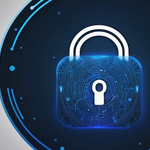
Virtual Private Networks, or VPNs, have become an essential security and privacy tool for iPhone users navigating an increasingly complex digital landscape. A VPN on an iPhone functions as a sophisticated encryption layer that cloaks a user’s IP address, location, device identifiers, and online activity by encrypting all internet traffic flowing between the device and the internet. At their core, VPNs operate by establishing a direct encrypted connection between an iPhone and remote servers controlled by the VPN service provider, creating what is effectively a secure tunnel through which all digital communications travel. This report provides a thorough examination of VPN technology on iPhone devices, exploring their technical architecture, implementation methods, security implications, and role in modern digital privacy protection.
Foundational Understanding of VPN Technology and Core Mechanisms
VPN stands for Virtual Private Network, which is fundamentally a Software as a Service (SaaS) product that encrypts a user’s online activity and adds a layer of protection for all transmitted data. The technology operates by masking the user’s real Internet Protocol address—a unique numerical identifier assigned to every device connected to the internet—while simultaneously hiding their geographic location and other identifying information. The concept of VPNs is not new to the technology landscape; the first VPN protocols were actually developed in the mid-1990s by Microsoft, primarily to ensure secure communication within internal corporate networks. Over the decades, VPN technology has evolved from a niche enterprise solution used only by large organizations to an increasingly mainstream tool accessible to everyday individual users seeking enhanced privacy protection.
The fundamental mechanism through which a VPN operates involves routing all of an iPhone’s digital traffic through remote servers, which are typically located in different geographical regions around the world. When a user connects to a VPN, their real IP address is replaced with the IP address belonging to the VPN service’s remote server, effectively masking their true location and creating a layer of anonymity between their device and the websites or services they access. This architectural design means that the user’s connection is secure, their actual location remains hidden, and neither hackers nor internet service providers can monitor their activity over the connection or access any unencrypted data being transmitted. Importantly, this security enhancement does not materially change the way people use the internet; instead, it simply enhances their ability to enjoy safer online experiences with greater control over their personal information and browsing habits.
The encryption process at the heart of VPN technology represents one of the most critical security components. When a user connects to a VPN, their data is encrypted before it leaves their device using advanced encryption algorithms that transform data into ciphertext—a format that can only be deciphered by someone possessing the appropriate decryption key. The strength of this encryption depends significantly on the algorithm used, with the most common standards including Advanced Encryption Standard (AES) with 128-bit or 256-bit keys. These encryption standards are considered secure and widely used in industries requiring stringent data protection, with 256-bit encryption particularly favored by security experts as the minimum threshold for truly secure VPN connections.
iPhone’s Native VPN Support and Protocol Architecture
Apple has built native support for Virtual Private Networks directly into iOS, the operating system powering all iPhone models, providing users with the capability to configure and connect to VPN services without requiring extensive additional setup or third-party operating system modifications. This native support means that iPhones come equipped with integrated VPN capabilities through the device’s built-in VPN client, accessible via the Settings application. iPhone users have access to multiple industry-standard VPN protocols and authentication methods, enabling them to connect securely to corporate networks, private networks, and various VPN services depending on their specific needs and security requirements.
The protocols supported by iPhone devices represent the backbone of modern VPN technology and determine how data is encrypted and transmitted between the device and VPN servers. The most prominent protocols supported by iOS include IKEv2/IPsec, L2TP/IPsec, and through various third-party applications, OpenVPN and WireGuard. IKEv2, or Internet Key Exchange version two, is considered a relatively modern tunneling protocol that forms part of the broader IPSec suite, developed through collaboration between Microsoft and Cisco and now existing in many open-source iterations. This protocol is particularly well-suited for mobile devices like iPhones because it can quickly re-establish connections when users switch between Wi-Fi and cellular networks, offering a superior balance of speed and security that has earned it recognition as a top choice for most users. The protocol sets up a control channel by authenticating a secure communication channel between the iPhone and the VPN server using the Diffie–Hellman key exchange algorithm, then uses that secure channel to establish what security professionals call a “security association”—essentially an agreement between the device and server regarding which encryption keys and algorithms they will use to communicate.
Layer 2 Tunneling Protocol combined with IPSec, or L2TP/IPsec, represents an older protocol architecture that remains widely supported across Apple’s device ecosystem but is generally considered slower than its more modern counterpart IKEv2. While L2TP/IPsec still provides robust security, it is often regarded by security professionals as a fallback option when IKEv2 is not available on a particular network or VPN service. In contrast, OpenVPN and WireGuard represent two of the most popular and trusted protocols in the broader VPN industry, with OpenVPN earning recognition as the gold standard for security and WireGuard gaining attention as a newer protocol known for its incredible speeds and modern cryptographic approaches. However, neither of these protocols receives native support from iOS itself, meaning users cannot select them through iPhone’s manual settings; instead, users must employ a provider’s dedicated application or a third-party client application to utilize these protocols on their devices.
Apple’s technical documentation reveals support for additional authentication methods that work in conjunction with these protocols, including authentication by shared secret, RSA Certificates, Elliptic Curve Digital Signature Algorithm (ECDSA) Certificates, EAP-MSCHAPv2, and EAP-TLS. This array of authentication approaches ensures that different organizational requirements and security postures can be accommodated within a single iPhone VPN implementation, allowing enterprises and individual users alike to select authentication methods appropriate to their threat models and security policies.
Setting Up and Configuring VPNs on iPhone: Methods and Processes
iPhone users have fundamentally two distinct methods available for configuring VPN access on their devices: using a dedicated VPN application, which is the recommended approach for most users, or performing manual VPN configuration through the device’s built-in settings, which requires more technical knowledge and specific configuration details from a VPN provider. The application-based approach represents the most straightforward and user-friendly path for the vast majority of iPhone users and is strongly preferred for both security and usability reasons.
Setting up a VPN through an application involves a remarkably straightforward process that begins with downloading a reputable VPN app exclusively from the official Apple App Store. Once downloaded and installed, users open the application and either sign in with an existing account or create a new account directly within the app, with some free VPN options not requiring account creation but offering limited functionality. The critical next step requires users to grant the VPN application the necessary permissions to add VPN configurations to the device—this typically appears as a system prompt requiring either the user’s iPhone passcode or Face ID authentication to confirm the action. After granting these permissions, connecting to a VPN becomes a simple matter of tapping a connect or power button within the app, which usually auto-selects the fastest available server or allows users to manually select their preferred country or server location. Most applications provide optional customization settings that allow users to choose specific locations or server types (such as servers optimized for streaming or peer-to-peer activities) and enable automatic connection features such as connecting whenever the user joins a public Wi-Fi network or cellular network.
For users preferring or requiring manual VPN configuration—often those using organizational VPNs or setting up connections not supported by available applications—the process requires accessing iPhone’s native Settings application, navigating to General, and locating the VPN section within device management settings. This manual approach demands that users possess specific technical information from their VPN provider, including the VPN server address, login credentials (username and password), and knowledge of which protocol (typically IKEv2, L2TP, or IPSec) should be employed. Users must enter this information carefully into the appropriate configuration fields, ensuring accuracy because any errors in configuration details can prevent successful connection establishment. If connection issues arise after manual configuration, Apple’s support documentation recommends verifying that all details have been entered correctly and confirming the existence of a stable internet connection before proceeding to contact the VPN provider’s support documentation for more specific troubleshooting guidance.
Security and Privacy Benefits of iPhone VPNs
The primary security benefit provided by VPN technology on iPhone devices manifests as protection of sensitive data transmitted between the device and internet-connected services. The encryption implemented by VPNs shields data such as personal details, bank account credentials, and credit card information from interception by cybercriminals or malicious actors monitoring network traffic. This protection proves especially critical when users access the internet through unsecured or public Wi-Fi networks, such as those commonly found in cafés, restaurants, airports, and hotels, where attackers may be positioned to intercept unencrypted traffic. Without VPN protection, a malicious actor sharing the same public Wi-Fi network could potentially position themselves as a “man-in-the-middle” to observe transmitted data, a risk that the VPN effectively eliminates through encryption.
Beyond protection against opportunistic hackers on shared networks, VPNs provide protection against tracking and surveillance by internet service providers (ISPs) and other third-party entities with technical capacity to monitor internet activity. ISPs can view an iPhone’s online activity and potentially sell this data to third parties for targeted advertising purposes, and ISPs can also use IP address information to monitor internet usage patterns and throttle (intentionally slow down) connections when users consume excessive bandwidth. Similarly, websites can use IP addresses to track visitor locations and browsing history to gauge user interests and create highly targeted advertisements and recommendations. A VPN prevents these forms of tracking by masking the user’s real IP address and routing traffic through the VPN provider’s servers, making it substantially more difficult for ISPs, websites, and advertisers to correlate online activities with the user’s actual identity or location.
The privacy dimension of VPN usage extends particularly to scenarios where users wish to access location-specific content while traveling or residing outside their home country. Many online services restrict content to people in specific regions, with examples including television content, YouTube videos, and streaming services that license content for particular geographical markets. A VPN enables users to circumvent these geographical restrictions by allowing them to connect through a server located in the region where content is officially available, effectively appearing to be accessing the internet from that location. This capability proves particularly valuable for expatriates, international travelers, or individuals using services intended for specific regions.

Advanced VPN Deployment and Enterprise Features on iOS
Beyond consumer-focused VPN applications, Apple’s iOS platform supports sophisticated VPN deployment scenarios designed specifically for organizational use, including corporate networks, educational institutions, and managed mobile device environments. The platform supports specialized VPN deployment modes known as VPN On Demand, Per-app VPN, and Always On VPN—each designed to address specific organizational security and access requirements.
VPN On Demand represents a sophisticated feature that enables Apple devices to automatically establish VPN connections on an as-needed basis without requiring user interaction. This feature requires an authentication method that doesn’t involve manual user involvement, typically certificate-based authentication managed through organizational infrastructure. Organizations configure VPN On Demand using the OnDemandRules key in a VPN configuration profile, and rules are applied in two distinct stages: a network detection stage that defines VPN requirements when the device’s primary network connection changes, and a connection evaluation stage that defines VPN requirements for connection requests to specific domain names on an as-needed basis. Practical implementation of VPN On Demand allows organizations to define rules such as recognizing when a device is connected to an internal corporate network where VPN isn’t necessary, recognizing when an unknown Wi-Fi network is being used and automatically requiring VPN connection, or starting the VPN automatically when DNS requests for specified domain names fail.
Protect Your Digital Life with Activate Security
Get 14 powerful security tools in one comprehensive suite. VPN, antivirus, password manager, dark web monitoring, and more.
Get Protected NowPer-app VPN represents another sophisticated feature that enables individual applications managed by a device management service to communicate with private networks using secure tunnels while excluding unmanaged applications from accessing the private network. This granular approach allows organizations to separate personal data from organizational data, resulting in secure networking for internal business applications while preserving user privacy for personal device activities. The architecture works such that only specified managed applications route their traffic through the VPN tunnel, while all other applications continue using standard network connections, providing flexibility for scenarios where certain organizational apps require secure access while other device functions should operate normally.
Always On VPN represents perhaps the most restrictive and comprehensive deployment scenario, available for IKEv2 and providing organizations with complete control over iOS and iPadOS device traffic by tunneling all IP traffic back to the organization’s infrastructure. Always On VPN activation requires device supervision, meaning the organization must have enrolled the device through formal Mobile Device Management (MDM) infrastructure using Apple Configurator for Mac, Apple School Manager, or Apple Business Manager. Once activated on a device, Always On VPN automatically activates without user intervention and remains activated (even across device restarts) until the Always On VPN profile is explicitly uninstalled from the device. The tunneling behavior is tied directly to interface IP state—when a network interface gains IP reachability, the VPN attempts to establish a tunnel, and when an interface’s IP state goes down, the tunnel is torn down. This creates a scenario where all IP traffic is tunneled whenever the VPN tunnel is established, including all IP-routed traffic and all IP-scoped traffic from first-party applications such as FaceTime and Messages, while all IP traffic is completely blocked if the tunnels are not operational.
Limitations, Drawbacks, and Potential Risks of iPhone VPN Usage
While VPN technology provides significant security and privacy benefits, users must understand that using a VPN introduces several potential drawbacks and limitations that should factor into adoption decisions. The most immediately noticeable drawback for many users involves reduced internet connection speeds, as VPNs must encrypt data and re-route all traffic through remote servers before reaching its final destination, a process that inherently introduces latency and processing overhead. Research into VPN performance indicates that users can expect average internet speed reductions of approximately seven percent when connecting to nearby VPN server locations, with reductions of approximately sixteen percent when connecting to servers at greater geographical distances. While not all VPN providers produce equal slowdowns—some premium services like NordVPN have demonstrated the ability to actually increase speeds in certain scenarios—users should anticipate some degree of speed degradation when selecting a VPN service.
The nature of VPN usage also results in increased mobile data consumption for users operating on cellular networks with data caps, as VPN encryption and tunneling protocols require additional data to function properly. Research indicates that mobile data consumption increases between four percent and twenty percent when using a VPN depending on the specific VPN service and protocol employed. While this four to twenty percent increase may not represent a dramatic change, over extended usage periods it can accumulate quickly, potentially causing users to reach their data limits sooner than expected. Users with limited data plans should consider using VPN protocols optimized for lower data consumption, such as WireGuard or IKEv2, rather than employing more data-intensive protocols like OpenVPN.
A more fundamental concern regarding VPN usage relates to the central paradox underlying the technology: by routing all internet traffic through a VPN provider’s servers, users are essentially replacing one potential point of surveillance (their Internet Service Provider) with another potential point of surveillance (the VPN provider itself). VPN providers are technically capable of tracking and logging all user activity passing through their servers, making VPN provider trustworthiness absolutely critical to actual security and privacy gains. Alarmingly, multiple instances have emerged of supposedly trustworthy VPN providers being caught selling user browsing data to third parties for advertising purposes—most notably, Avast was caught on multiple occasions selling customer browsing information before claiming to have ceased the practice. Free VPN providers present an even greater risk in this regard, as they must monetize their service somehow without charging subscription fees, and many resort to tracking user data and selling it to advertisers as their primary revenue model. Security researchers have documented numerous instances of free VPN applications containing malware, harvesting user data, or displaying aggressive advertising, making such services particularly risky from a security perspective.
Another technical limitation that users should understand involves DNS leaks, which occur when a VPN fails to protect a device’s Domain Name System (DNS) queries even when the rest of traffic is concealed by the VPN tunnel. If a user’s DNS leaks, unauthorized entities such as ISPs or DNS server operators can determine which websites are being visited and which applications are being used, effectively defeating the privacy purposes of the VPN. Since iOS version 13.4, Apple devices have been documented as experiencing DNS leaks from Apple services, with some DNS queries being sent outside the VPN tunnel even when a VPN is active and a kill switch is enabled. While these non-VPN connections typically last only a few seconds, some can persist for several minutes, and while Apple is aware of this issue, the company has not yet implemented a comprehensive fix addressing the problem.
Additionally, users must understand that VPNs are completely illegal or heavily restricted in numerous countries around the world, including China, North Korea, Russia, Iran, Iraq, the United Arab Emirates, Belarus, Turkey, Oman, and Uganda. Users residing in or traveling to these jurisdictions should carefully research the legal status of VPN usage before attempting to employ such services, as doing so could expose them to legal consequences. Furthermore, before setting up a VPN on their iPhones, users should note that VPN services may be banned or restricted in certain countries, with some nations like Russia and India only permitting VPN providers that agree to log and share user data with governmental authorities, a requirement that effectively defeats the privacy purposes of using a VPN.
The Contentious Debate Surrounding VPN Necessity and Effectiveness
An important aspect of understanding VPNs on iPhone involves recognizing legitimate cybersecurity debates regarding whether VPNs actually improve security for typical iPhone users in common usage scenarios. While VPN providers and many cybersecurity commentators enthusiastically advocate for VPN adoption, some experienced security professionals present compelling counterarguments suggesting that VPNs may actually create more security problems than they solve for average users, particularly when considering the architectural realities of modern iOS security.
Prominent members of the cybersecurity community argue that iPhone’s built-in security architecture is sufficiently robust for most users such that the VPN benefits fail to outweigh the risks and complications introduced by VPN deployment. These security experts note that all communications between an iPhone and internet servers are already protected through end-to-end encryption protocols, meaning data sent to and from the device remains secure even when using unsecured or public Wi-Fi networks without any additional VPN protection. From this perspective, the main benefit of a VPN would be privacy regarding which websites and services are being accessed, rather than protection against data interception during transit—a narrower benefit than commonly advertised by VPN vendors.
Furthermore, some security researchers point out that free VPN services should be actively avoided because the VPN provider needs to generate revenue somehow, and when the service is free, users themselves effectively become the product being sold—specifically, their usage data and browsing information being sold to advertisers. Even paid VPN services, according to this perspective, introduce trust requirements that many users fail to adequately evaluate, with demonstrated instances of supposedly reputable providers engaging in data monetization practices despite claiming strong privacy protections.
An important counterpoint to this debate is that Apple has developed iCloud Private Relay as an alternative privacy solution specifically designed for iOS devices. iCloud Private Relay is not technically a VPN but rather a privacy feature that encrypts internet traffic and routes it through two separate relays instead of a single VPN server, providing enhanced privacy compared to traditional VPN approaches. iCloud Private Relay has the advantage of being operated by Apple (eliminating the trust requirement for third-party VPN providers) and provides a safer browsing environment than traditional VPNs without engaging in user surveillance. However, iCloud Private Relay functions only with Safari and a limited set of applications, meaning other apps and online activities remain unprotected. Despite this limitation, some security professionals recommend iCloud Private Relay as superior to most consumer VPN services for privacy-conscious Safari users.
VPN Provider Selection and Evaluation Criteria for iPhone Users
When users do decide to employ a VPN service on their iPhone, properly evaluating and selecting among available providers becomes critical, as services differ significantly in quality, functionality, and trustworthiness. Research into choosing appropriate VPN providers reveals several crucial evaluation criteria that users should carefully consider before committing to any particular service.
Connection security represents perhaps the most fundamental evaluation criterion, requiring users to research what encryption method each VPN provider uses and verifying that they employ at minimum 256-bit encryption, which is widely recognized as the current standard for secure VPNs. Users should investigate the specific encryption algorithms deployed, with AES (Advanced Encryption Standard) representing a particularly strong and widely trusted option. Beyond static encryption strength, users should evaluate the VPN provider’s approach to key exchange and forward secrecy, ensuring that the provider employs modern cryptographic approaches like elliptic curve cryptography rather than outdated methods that might be vulnerable to attack.
Activity logging policies require careful scrutiny through reading provider terms and conditions and privacy policies to ensure that the VPN does not track or log user activity. Crucially, users should distinguish between providers making mere claims about not logging versus those who have undergone independent third-party audits confirming their no-logs policies. Providers like NordVPN, Proton VPN, and IPVanish have published independent security audit reports confirming compliance with their stated no-logs policies, providing greater assurance than unverified claims. Users should be particularly cautious about providers claiming to offer no-logs policies but failing to make corresponding audit reports publicly available, as such claims lack the verification that would support genuine confidence in privacy protection.
Monetization models provide critical insight into potential user data practices, as understanding how a VPN provider generates revenue offers important clues regarding potential conflicts of interest around user privacy. Users should research whether the provider charges subscription fees or relies on free service supported by other revenue streams, understanding that providers not charging subscription fees must monetize their services through alternative means—commonly by selling user information to third parties for advertising purposes or by engaging in other user data commercialization practices. Free VPN services should be approached with substantial caution given the demonstrated tendency of such providers to engage in data harvesting and monetization.
Connection speed and overall performance require evaluation before committing to any VPN service, as users should ensure that the VPN will not unacceptably slow their internet connection. Most reputable VPN providers offer trial periods allowing users to test performance before committing to subscription plans, and reading independent performance reviews can provide helpful guidance regarding speed characteristics of different services.
Usage caps represent another important consideration, particularly for users with limited data allowances or mobile data constraints. Some providers implement daily or monthly limits on their VPN connections, particularly when offering free and paid tier options, and users should check what caps apply to their selected service and determine whether such limits align with their usage patterns.

Top VPN Providers for iPhone in 2025 and Their Distinguishing Characteristics
Based on current testing and evaluation as of 2025, several VPN providers have emerged as particularly well-suited to iPhone users seeking reliable security, privacy protection, and performance characteristics. NordVPN consistently ranks as the top-performing VPN for iPhone users, delivering exceptional speeds through implementation of the WireGuard protocol (branded as NordLynx by NordVPN) that offers the fastest performance available while maintaining strong security standards. In independent speed testing, NordVPN achieved download speeds of 892 Mbps through its NordLynx implementation, representing exceptional performance compared to competitors. NordVPN’s infrastructure operates entirely on RAM-disk servers without hard drives, eliminating any possibility of logs being physically stored, and the provider has undergone multiple independent no-logs audits confirming compliance with privacy claims. NordVPN supports connection to servers in over 118 countries and includes advanced security features like double-VPN and Tor-over-VPN options, making it suitable for both casual users and those with heightened privacy requirements.
Surfshark represents an excellent budget-friendly alternative providing exceptional value while maintaining strong security and privacy standards. Surfshark offers substantially lower pricing than NordVPN (around $1.99-$2.19 per month on annual plans compared to NordVPN’s $2.99-$3.39 per month) while still delivering reliable speeds and comprehensive security features. Notably, Surfshark provides unlimited simultaneous connections on a single subscription, allowing users to protect multiple devices simultaneously without purchasing additional subscriptions. The service includes advanced features like split tunneling, CleanWeb ad and tracker blocking, and MultiHop servers providing enhanced privacy.
ExpressVPN stands out as a particularly strong option for users prioritizing security and reliability in jurisdictions with aggressive internet censorship and government surveillance. ExpressVPN operates through modern encryption approaches including AES-256 with perfect forward secrecy and has developed Lightway, a proprietary VPN protocol designed to achieve exceptional performance while maintaining strong security standards. The service includes a 30-day money-back guarantee and operates with a strict no-logs policy, though ExpressVPN does not undergo independent audits with the same frequency as some competitors.
Proton VPN represents an interesting option developed by the same Swiss-based organization that created Proton Mail, bringing expertise in encrypted communications to VPN services. Proton VPN offers a blend of security, speed, and user-friendly features, with a no-logs policy audited by independent security experts. The service provides access to over 15,000 VPN servers spread across 122 countries, extensive features including NetShield ad and tracker blocking, Tor-over-VPN routing for enhanced privacy, and Secure Core double-VPN servers. However, Proton VPN’s performance testing showed it to be somewhat slower than NordVPN despite the service’s other strengths, and the pro-rated 30-day money-back guarantee and limited live chat support (available only during Swiss business hours) represent minor limitations.
Future Trends and Evolving VPN Technology Landscape
The VPN industry continues to evolve in response to emerging technological developments and changing threat landscapes, with several significant trends expected to shape VPN technology going forward. The most immediate and pressing development involves preparing VPN encryption for the quantum computing era, as full implementation of quantum computing is expected between 2030 and 2035, at which point current encryption standards may become obsolete against quantum-powered cryptanalysis attacks. Several VPN providers including NordVPN, Windscribe, ExpressVPN, PureVPN, and Mullvad have already implemented post-quantum encryption algorithms alongside traditional protections, with IPVanish, Proton VPN, and Surfshark announcing plans to integrate post-quantum encryption during 2025. This transition toward quantum-resistant cryptography represents an important evolution ensuring that VPN protection remains effective even as computing power increases dramatically.
Artificial intelligence integration into VPN services represents another significant emerging trend, with VPN providers beginning to harness AI capabilities both to enhance their services and to defend against AI-driven threats. NordVPN pioneered this trend by launching Threat Protection Pro, an AI-driven tool showcasing how artificial intelligence can elevate traditional cybersecurity offerings into smarter, more adaptive solutions. Similarly, Mullvad launched its DAITA (Defense Against AI-guided Traffic Analysis) feature specifically designed to fight sophisticated AI-powered surveillance attempts, and Surfshark has identified AI as both a threat to cybersecurity and a powerful tool for enhancing products through improved diagnostics and threat tracking. As artificial intelligence becomes increasingly sophisticated, VPN providers will need to continue evolving their approaches to maintain protection against AI-powered surveillance and analytical attacks.
Decentralization and blockchain integration represent emerging VPN innovations with potential to fundamentally change how VPN services operate. Decentralized VPNs (dVPNs) leverage distributed blockchain networks rather than central VPN servers, providing enhanced privacy and security through distributed node structures rather than relying on centralized infrastructure. Blockchain’s immutable ledger ensures transparency and trust, potentially addressing legitimate concerns about centralized VPN provider trustworthiness by making all provider actions and policy changes transparent and permanently recorded. As users become increasingly aware of benefits associated with decentralization and Web 3.0 technologies, demand for dVPNs is expected to surge.
The VPN landscape will continue to be shaped by expanding internet censorship globally, with Proton VPN documenting spikes in sign-ups in at least 15 countries since January 2024, particularly in regions implementing restrictions including Pakistan, Kenya, and Mozambique. Political turmoil surrounding the most recent global election season in 2024 prompted many countries to temporarily shut down internet and social media access, making censorship-resistant VPNs increasingly critical infrastructure for accessing unfiltered information. Experts expect internet censorship to continue rising in 2025, with some predictions suggesting that Western nations with minimal historical censorship may begin introducing internet restrictions, making robust and censorship-resistant VPN technology increasingly essential globally.
Practical Management and Troubleshooting of iPhone VPNs
Understanding how to properly manage VPN configurations on iPhone devices proves important for both security and operational reasons. When users encounter connectivity issues or need to switch VPN services, proper removal of existing VPN profiles becomes critical, as leftover VPN configurations can interfere with subsequent network operations. Removing a VPN from an iPhone involves navigating to Settings, selecting General, scrolling to find VPN and Device Management, tapping the VPN configuration, selecting the edit (information) icon, and choosing delete to remove the VPN profile entirely. For users who downloaded a VPN application, completely removing the VPN from the device also requires deleting the associated application by long-pressing the app icon and selecting the remove option, then confirming deletion to ensure the VPN is completely eliminated from the device.
A particular concern for users upgrading to new iPhone models involves VPN configuration transfer during device migration. When a user performs a device backup with an active VPN, the VPN configuration becomes embedded in the backup and transfers to the new device even if the VPN application is not installed on the new phone. This scenario can create significant connectivity issues on the new iPhone, with both cellular and Wi-Fi connections becoming intermittent, data transmission failing, and iMessages sometimes working only sporadically while website connections prove impossible. If users encounter these symptoms after upgrading to a new iPhone, the solution involves navigating to Settings, General, VPN and Device Management, and deleting the VPN configuration profile, which immediately resolves the connectivity issues. To prevent this issue entirely, users should turn off their VPN on their old device before performing a backup in preparation for device migration.
Network connectivity problems can sometimes be caused or exacerbated by VPN software or other third-party security software monitoring network connections, which can potentially block necessary connections required for internet access or communication with other devices on the network. If a user experiences connectivity issues potentially related to VPN software, Apple’s troubleshooting approach recommends first ensuring that date, time, and time zone settings are correct on the device, confirming that the device is using the latest software updates, restarting the device (and potentially the modem and router), and testing connection to a different network to determine whether issues are network-specific. If the problem persists and appears related to VPN or security software, users should check whether any such applications are installed and temporarily disable their features to determine if the issue continues. Additional troubleshooting involves searching device settings for configuration profiles containing VPN settings by using the Settings search function, and if such profiles are found and are not managed by the user’s organization, users can delete these profiles and restart their devices to resolve connectivity issues.
Securing Your iPhone: The VPN Advantage
Virtual Private Networks on iPhone devices represent a sophisticated technology with genuine security and privacy benefits for users operating in threat environments where network eavesdropping or tracking by internet service providers represents a realistic concern. The technology operates through established principles of data encryption and IP address masking that effectively prevent third parties from observing user internet activity, create geographic anonymity through remote server connections, and eliminate ISP ability to monitor browsing and throttle bandwidth based on usage patterns. iPhone’s native support for industry-standard VPN protocols including IKEv2/IPsec, L2TP/IPsec, and through applications OpenVPN and WireGuard, combined with advanced deployment features like VPN On Demand and Always On VPN, makes iPhone a particularly well-suited platform for implementing VPN technology across both personal and enterprise scenarios.
However, honest evaluation of VPN technology requires acknowledging significant limitations and potential risks that should factor into user adoption decisions. VPN usage introduces observable performance degradation, increased data consumption, and introduces new trust requirements for third-party VPN providers whose technical capability to surveil users is essentially equal to that of ISPs. The demonstrated instances of VPN providers engaging in user data commercialization despite privacy claims, combined with the inherent risks associated with free VPN services, underscore the importance of careful provider selection based on transparent audit reports, clear monetization models, and verifiable no-logs policies. Additionally, users in certain jurisdictions should understand that VPN usage may violate local laws or regulations, requiring careful legal research before VPN adoption.
For users determining whether VPN adoption makes sense for their specific circumstances, several scenarios present particularly compelling use cases for VPN technology. Users frequently accessing sensitive financial information through internet banking require protection against man-in-the-middle attacks on shared networks. Expatriates or international travelers accessing content licensed for specific regions benefit from geographic anonymity that VPNs provide. Business professionals requiring access to corporate networks and confidential information from remote locations gain essential security through properly configured VPNs. Users with legitimate privacy concerns regarding surveillance by government entities or corporations with technical capacity for monitoring can reasonably expect meaningful protection from appropriately implemented VPN technology.
Conversely, casual users primarily interested in general internet browsing through residential networks may find that iPhone’s built-in security and Apple’s iCloud Private Relay provide sufficient protection without the complexity and trust requirements introduced by third-party VPN services. These users should carefully weigh the marginal privacy benefits of VPN adoption against the operational complications, potential performance impacts, and data concerns that VPN usage introduces. For such users, focusing on maintaining strong device security practices, using complex authentication credentials, and enabling Apple’s native privacy features like iCloud Private Relay may deliver better risk-adjusted security outcomes than third-party VPN adoption.
The future of VPN technology appears likely to involve continued evolution toward post-quantum cryptography ensuring protection against quantum computing threats, increased integration of artificial intelligence for threat detection and performance optimization, and exploration of decentralized approaches leveraging blockchain technology to address trustworthiness concerns inherent in centralized VPN provider models. As these technologies mature, VPN services will likely become simultaneously more technically sophisticated and potentially more accessible to typical users through improved user interfaces and automated optimization approaches. Regardless of technological evolution, the fundamental principle underlying sound VPN adoption remains constant: users should deploy VPN technology in response to genuine threats present in their specific usage contexts, armed with realistic understanding of both VPN capabilities and limitations, informed by independently verified information about VPN provider trustworthiness and practices, and selected from among services demonstrating genuine commitment to privacy protection through verifiable practices rather than unaudited marketing claims.






